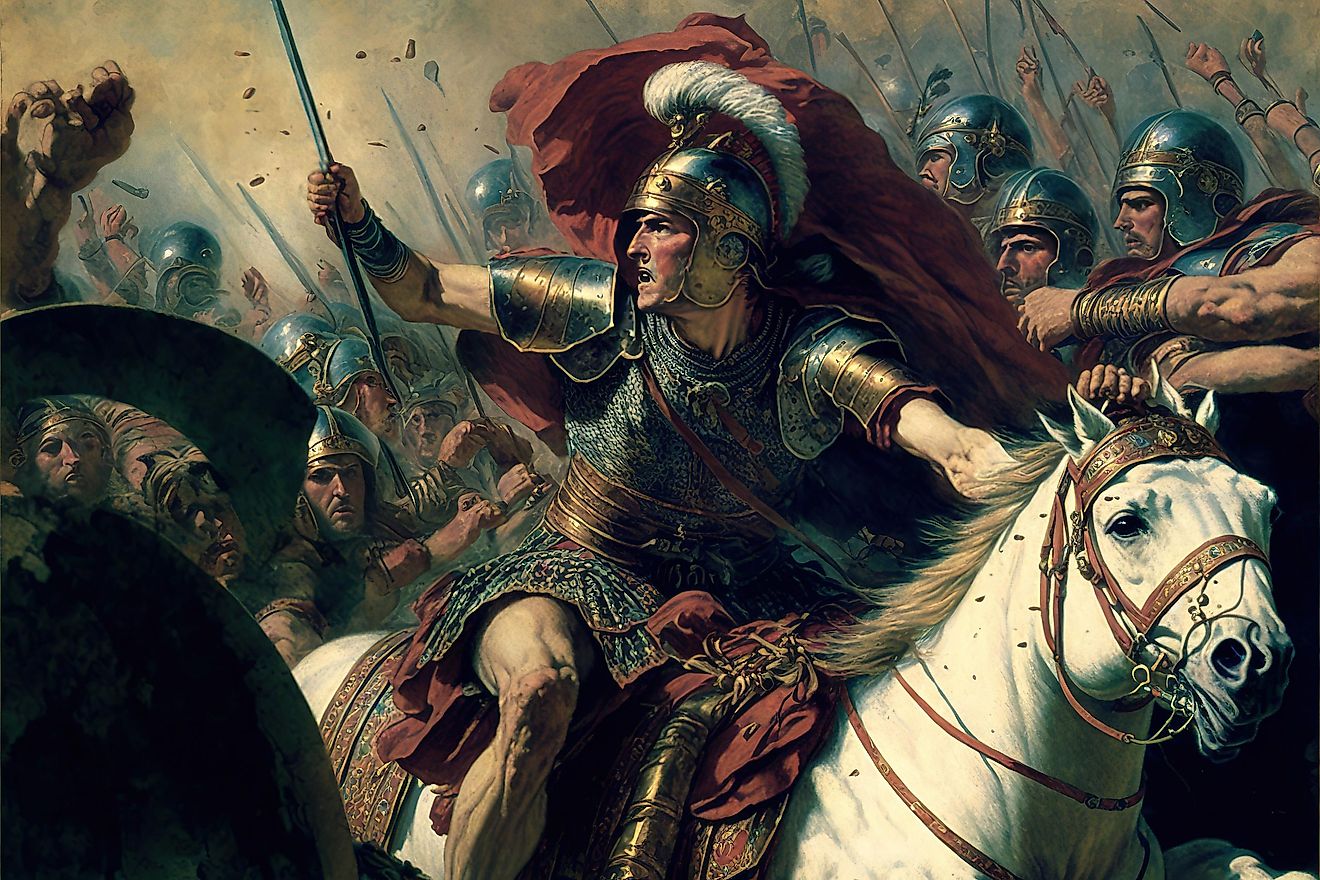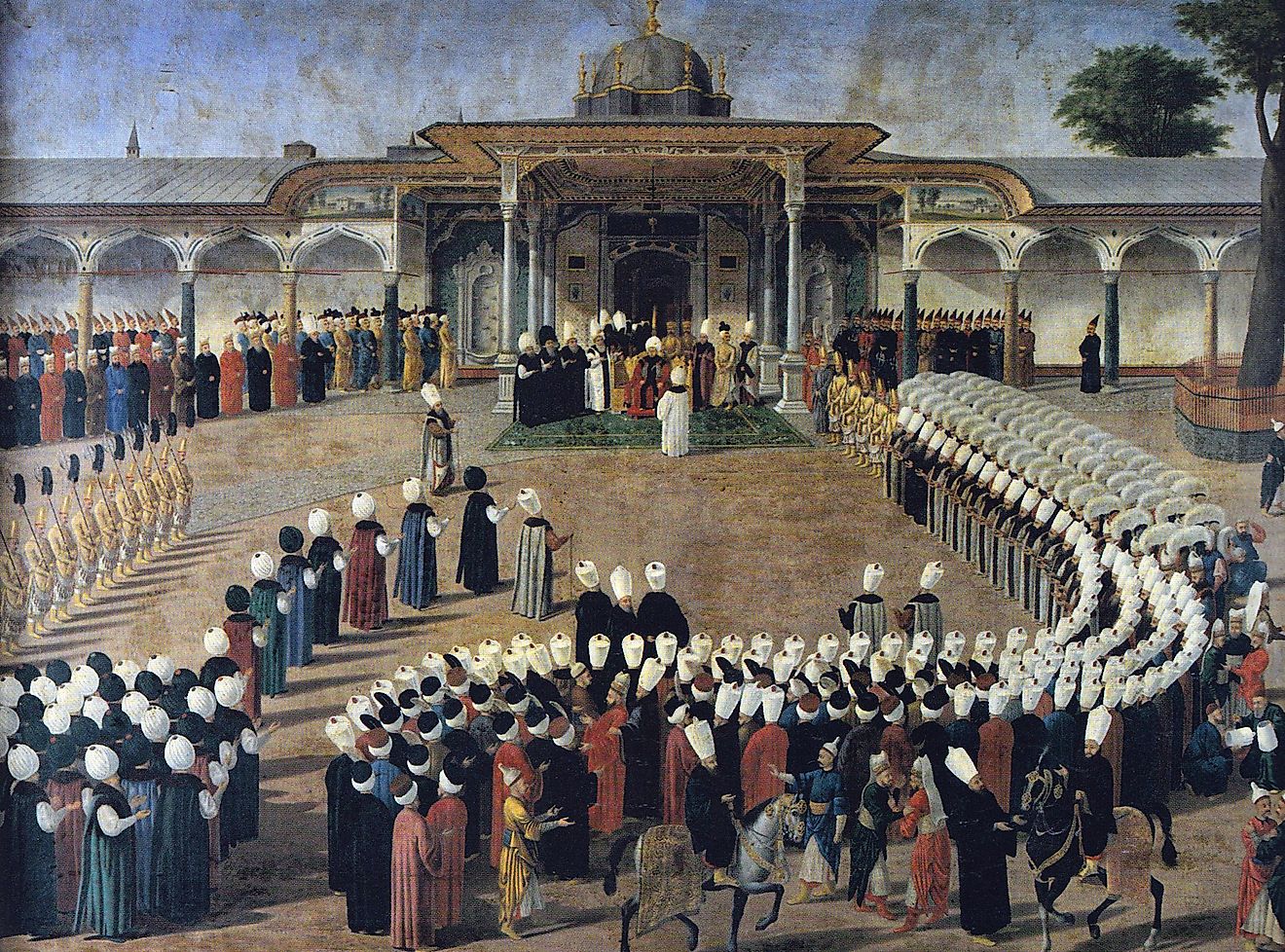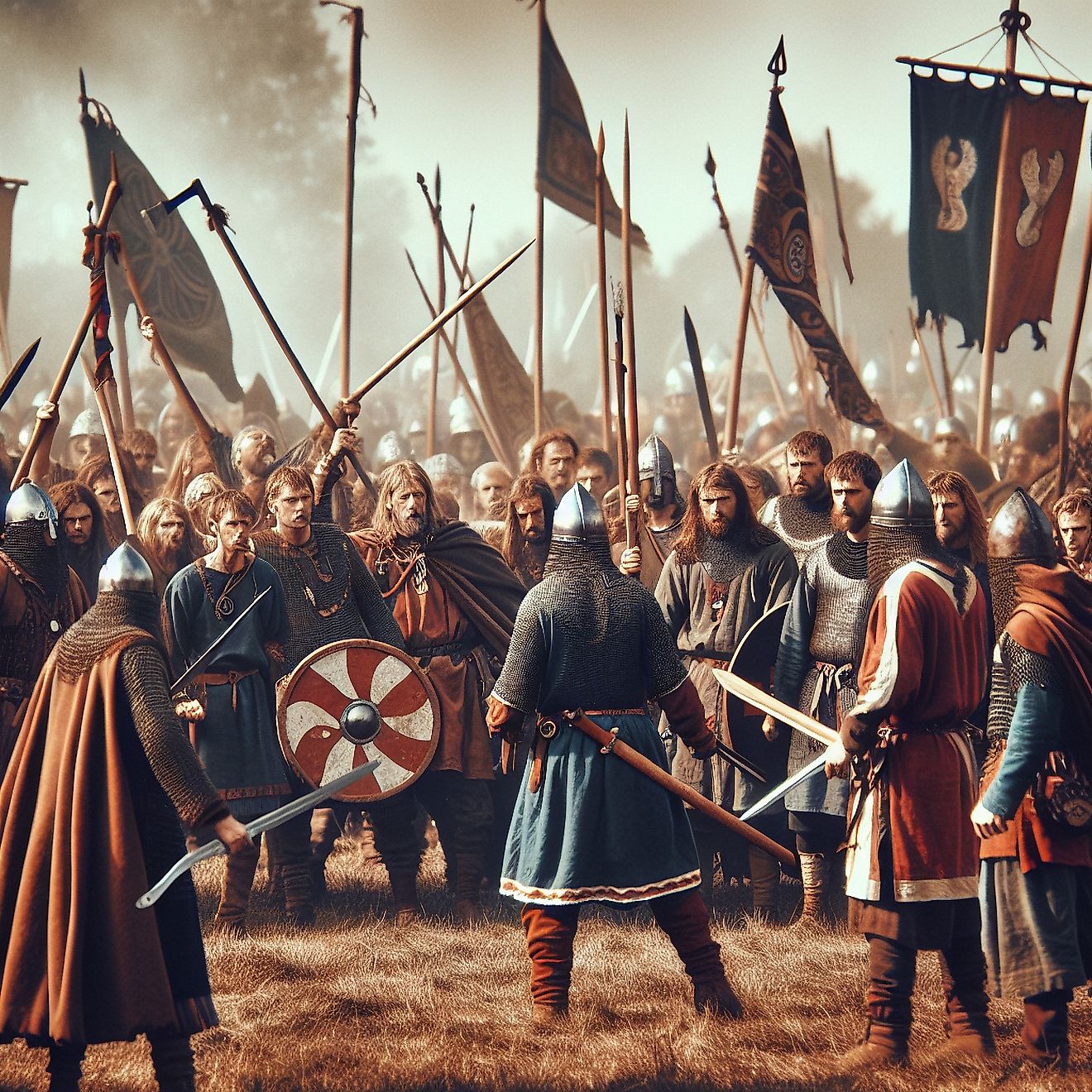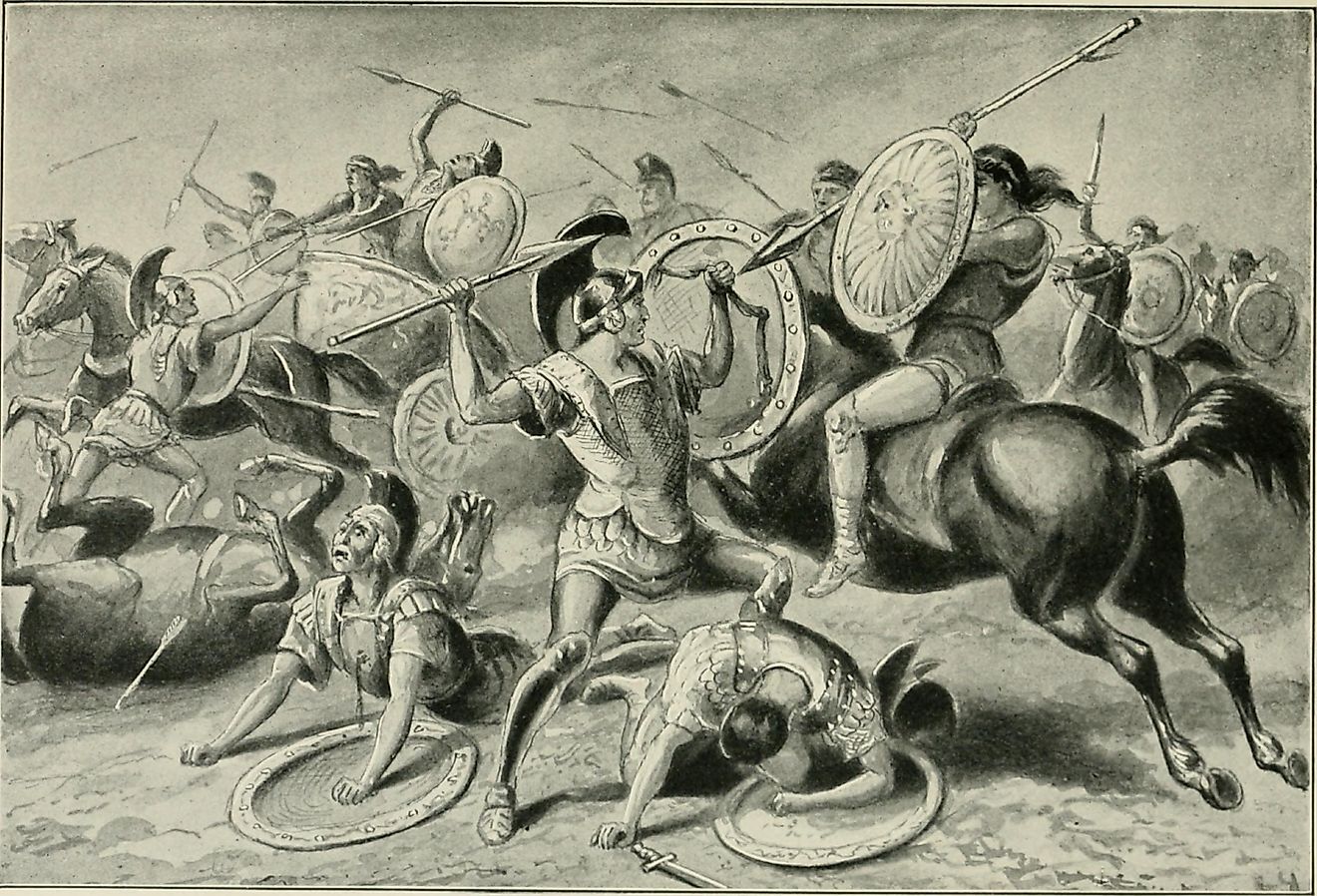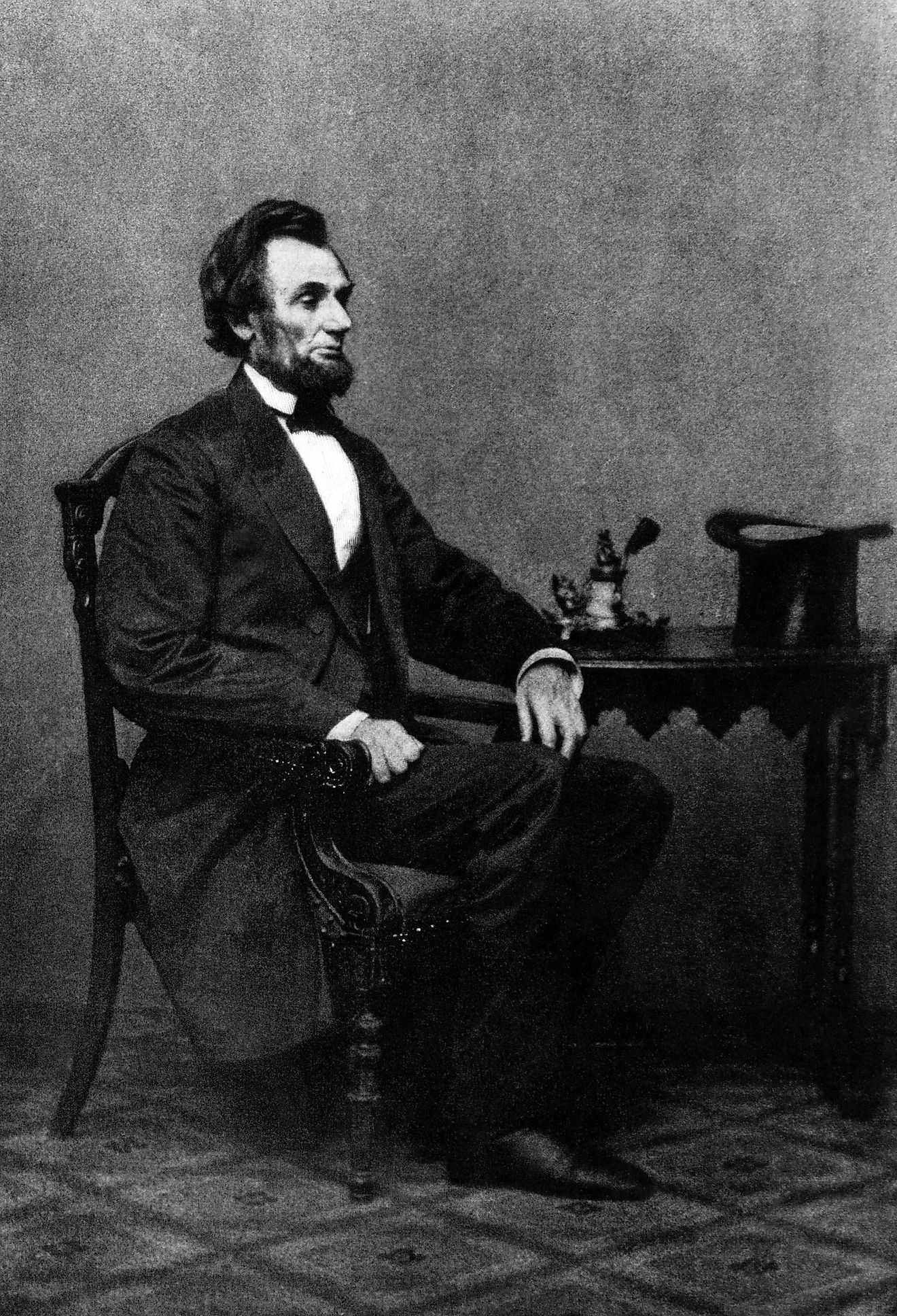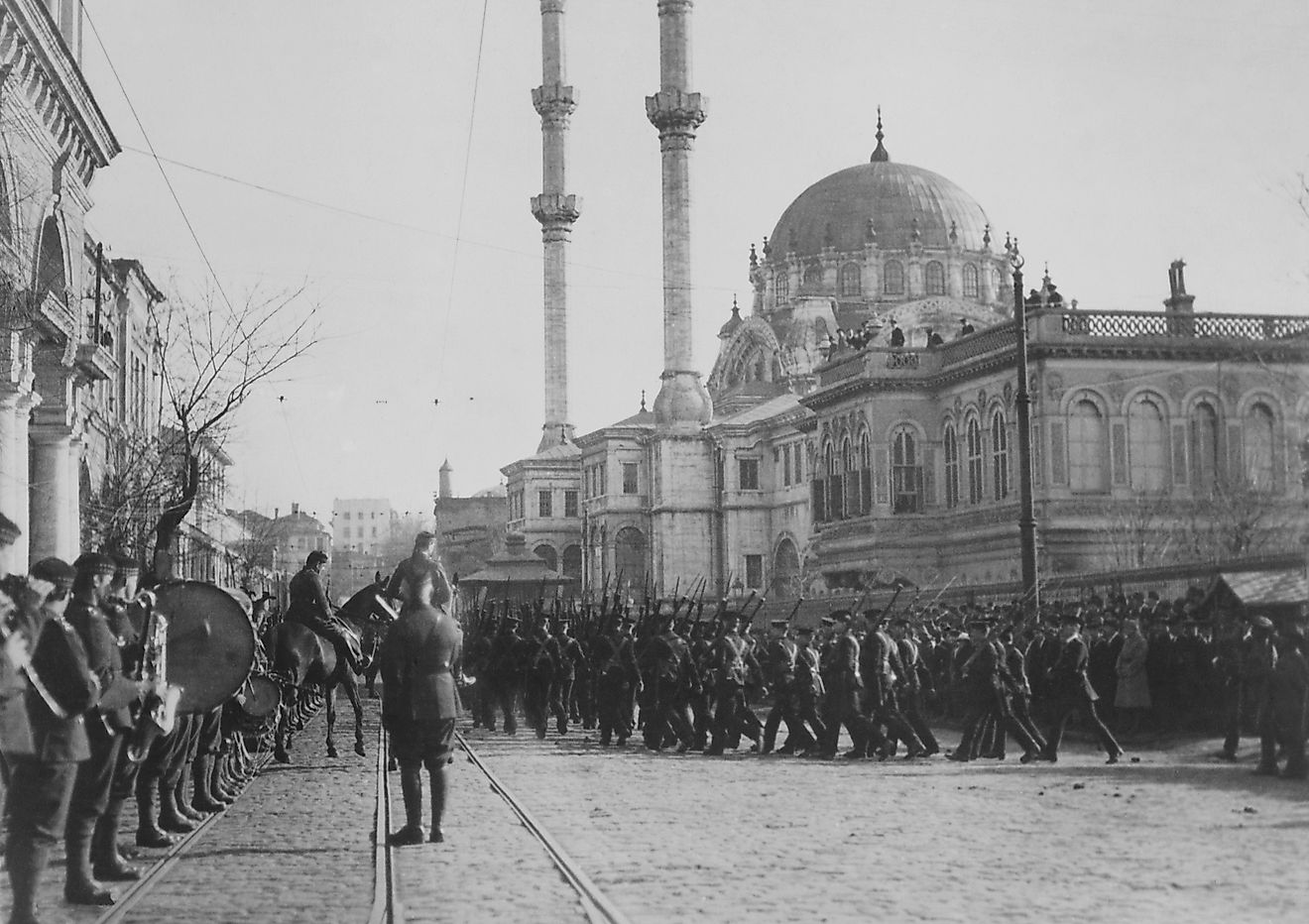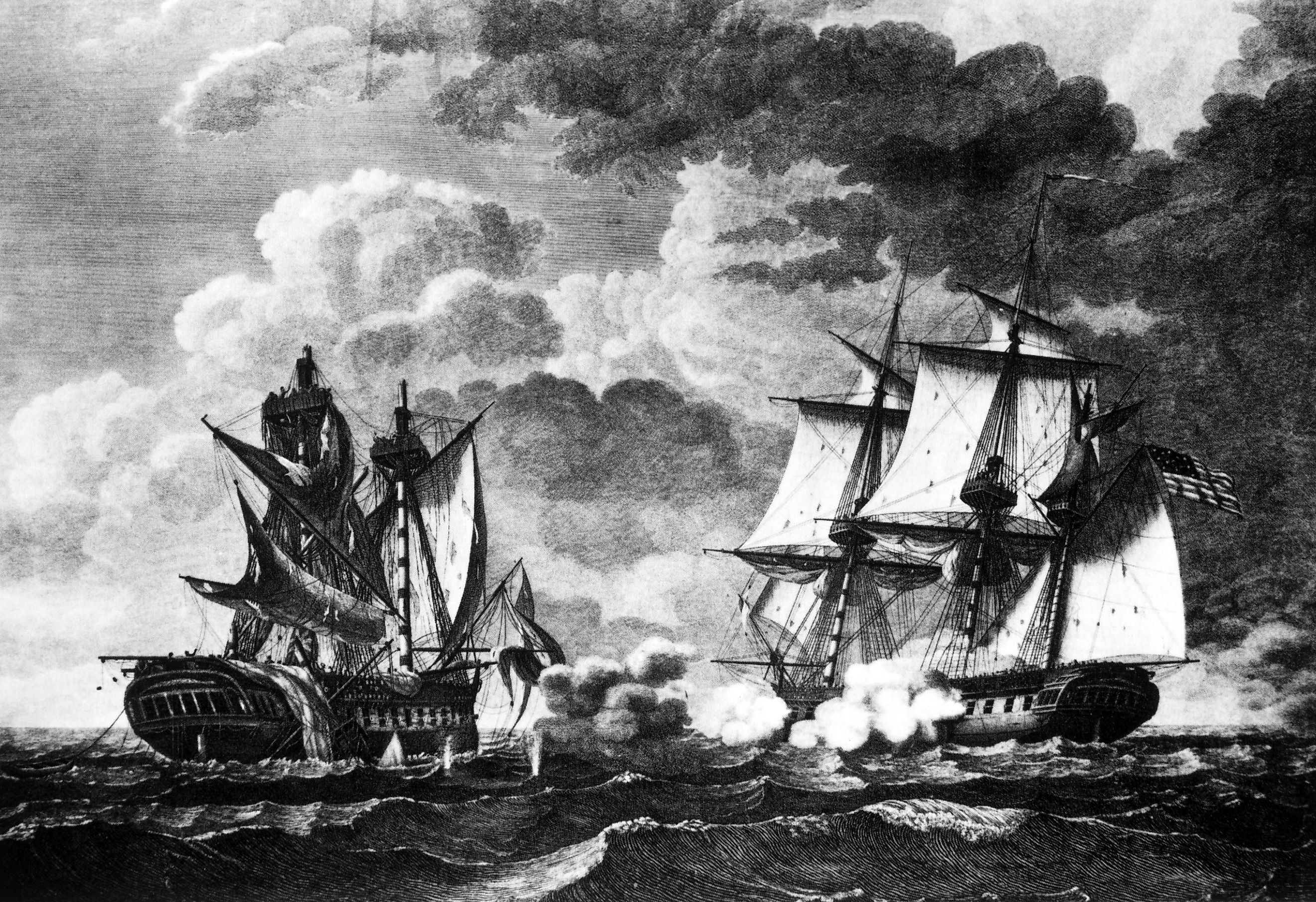
Wars The United States Didn't Win
Since its independence in 1776, the United States has maintained one of the world’s most powerful militaries and has engaged in over 100 armed conflicts. While achieving numerous successes, the U.S. has also faced defeats, with its first significant failure occurring just nine years after the country's independence. Some of the United States’ most prominent defeats include the American-Algerian War, the War of 1812, Red Cloud’s War, the Formosa Expedition, the Korean War, the Vietnam War, the Bay of Bigs Invasion, and the War in Afghanistan.
American-Algerian War
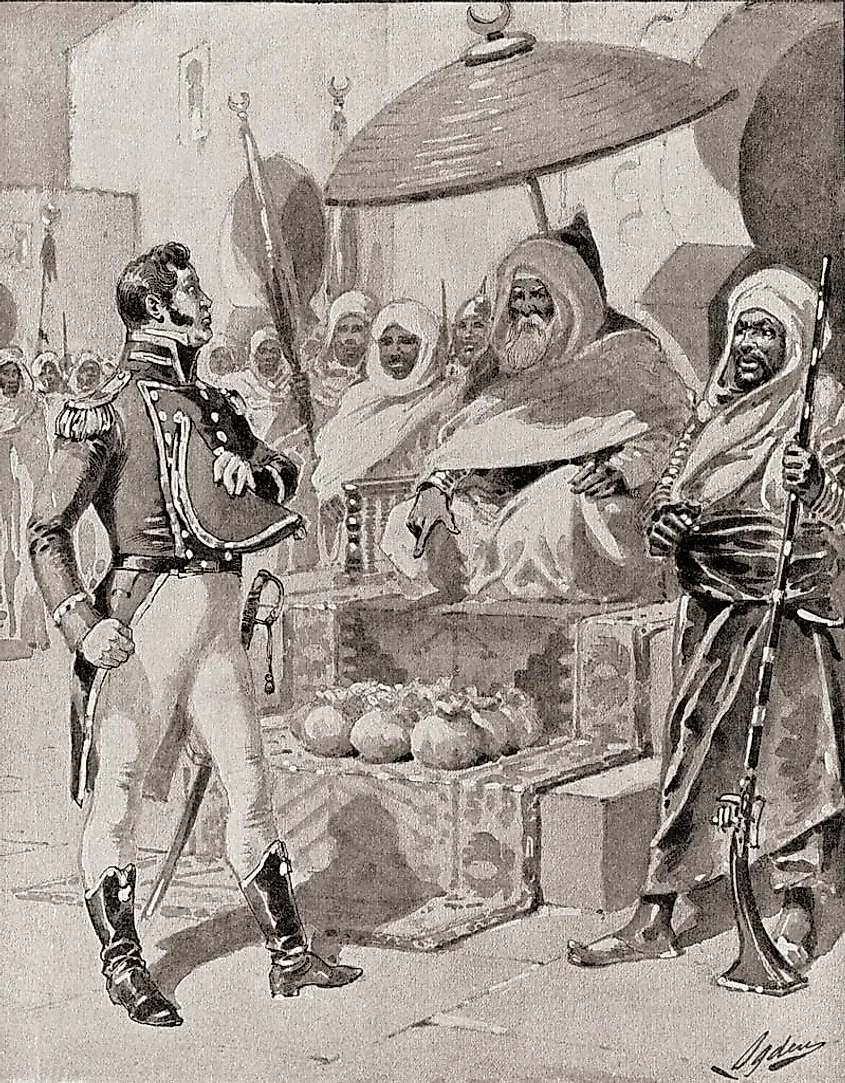
The American-Algerian War was one of the first conflicts the United States faced after gaining independence from Britain. It began in 1785 when Algiers took advantage of the fact that the Royal Navy no longer protected American merchants. Barbary pirates seized 53 U.S. ships and captured 180 American sailors near Algiers. Without a navy to defend itself, the United States was forced to negotiate a treaty, agreeing to pay Algiers an annual tribute of $21,600 to resolve the conflict. Following this loss, US Congress passed the Naval Act of 1794, creating the United States Navy.
War of 1812
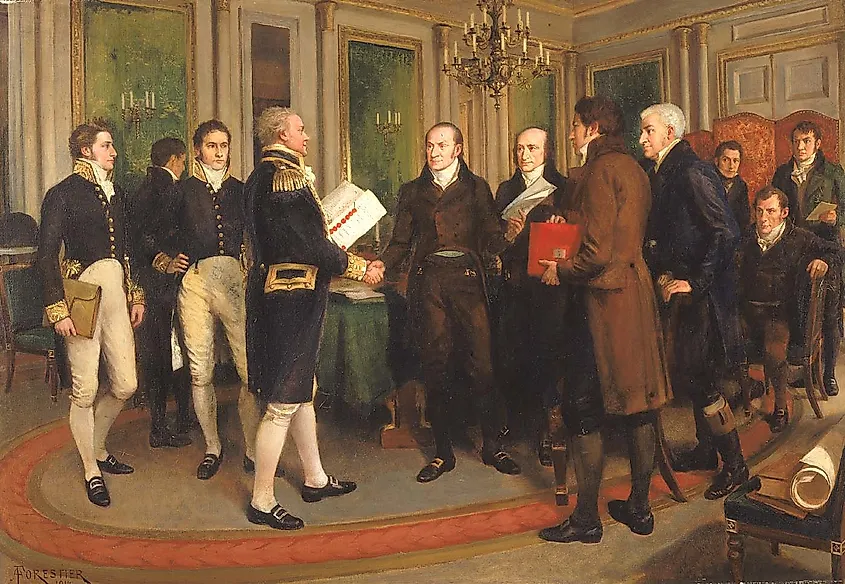
On June 18th, 1812, the United States declared war on Great Britain, prompted by British restrictions on American trade with Europe and the Royal Navy's practice of forcibly recruiting U.S. sailors. Throughout the war, the U.S. made several attempts to invade British-controlled Canada, but these efforts were unsuccessful. Despite having a much smaller navy, the U.S. engaged in numerous naval battles. In 1814, British forces burned down many key buildings in Washington D.C., including the White House, in retaliation for the US burning a British city in Canada. Later that year, both countries signed the Treaty of Ghent, which restored pre-war boundaries without addressing the original issues that led to the conflict.
Red Cloud’s War
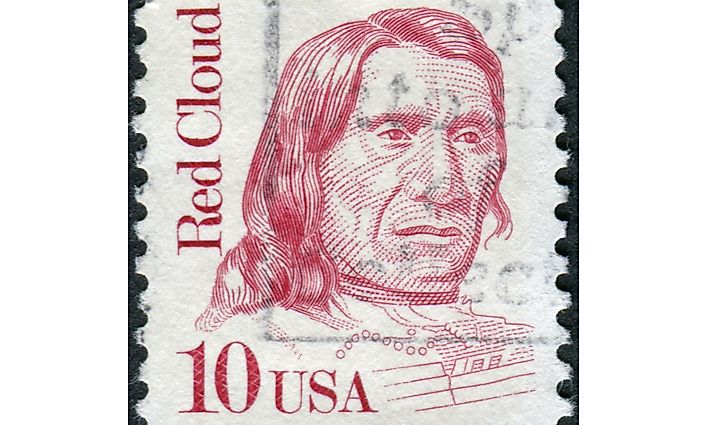
Red Cloud's War began in 1866, when the United States sought to seize land in what is now north-central Wyoming from the Northern Cheyenne, Lakota, and Northern Arapaho. The conflict primarily involved small-scale Native American attacks on U.S. forts, including the Fetterman Fight, the deadliest battle of the war, where 81 American soldiers were killed. In 1868, the U.S. pursued peace, resulting in the Treaty of Fort Laramie, which granted total legal control of the region to the Northern Cheyenne, Lakota, and Northern Arapaho. However, this control was short-lived, as the U.S. resumed its efforts to seize Native lands during the Great Sioux War of 1876, despite the treaty.
Formosa Expedition
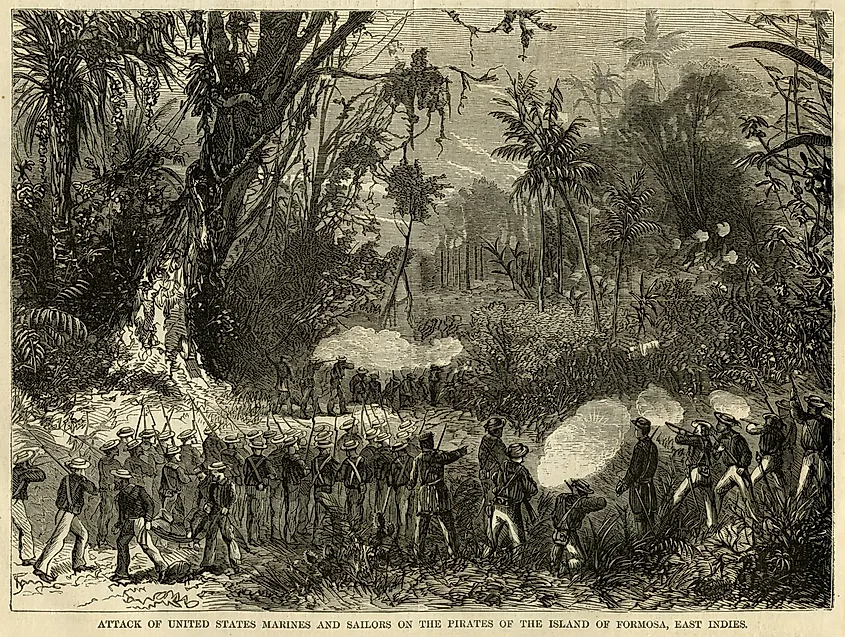
The Formosa Expedition, also known as the Taiwan Expedition of 1867, was launched by the United States in retaliation against the Paiwan, a native Taiwanese tribe, after they had massacred an American crew in March of that year. In response to the U.S. attack, the Paiwan employed guerrilla warfare tactics, ambushing, striking, and retreating repeatedly, which weakened the American forces. During one of these skirmishes, the Paiwan killed Alexander Mackenzie, the commander of the U.S. Marines. Following this fatality,, the United States forces retreated to their ship, ending the conflict, which is now considered a failure for the U.S.
Korean War
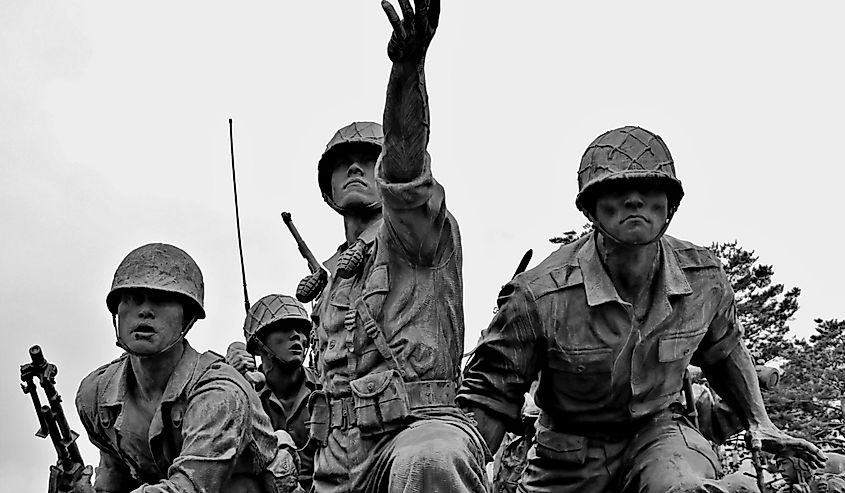
The Korean War, fought from 1950 to 1953, began as both North and South Korea claimed control over the entire peninsula, drawing in their respective allies. The United States backed South Korea, while China and the Soviet Union supported North Korea. Within the first two months of the war, North Korean forces, with their allies’ support, had nearly overrun South Korea. However, United Nations forces, led by the U.S., intervened and launched a counteroffensive, pushing deep into North Korea by late 1950. This advance was halted when the Chinese People's Volunteer Army entered the war, driving U.N. forces back to the south.
The fighting seesawed over the next few years, with no decisive victory on either side. The conflict ended in 1953 with the signing of the Korean Armistice Agreement, which established the Korean Demilitarized Zone (DMZ) and allowed for the exchange of prisoners. Despite the agreement, millions of people were displaced and there were millions of casualties more due to political tension. No formal peace treaty was ever signed, leaving the conflict unresolved and the peninsula divided to this day.
Vietnam War
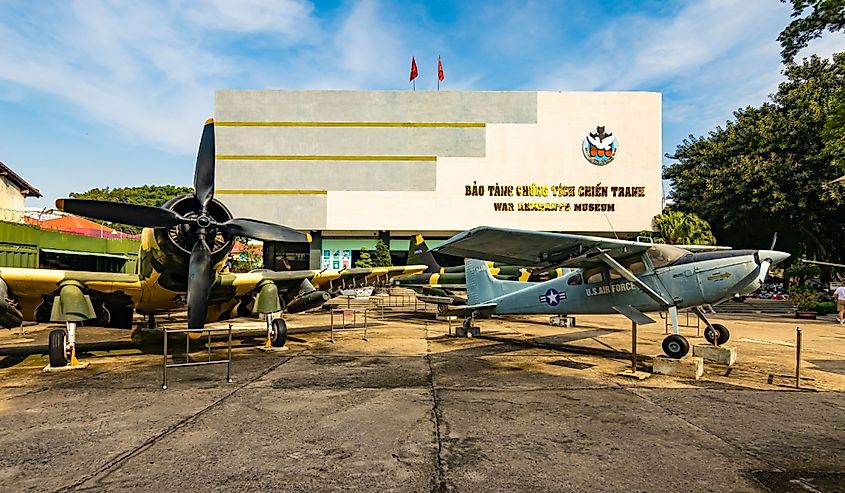
The Vietnam War, fought from 1955 to 1975, pitted North Vietnam, backed by the Soviet Union and China, against South Vietnam, which the United States primarily supported. As part of the broader Cold War, the conflict became a proxy war between the U.S. and the Soviet Union. The war grew highly controversial within the U.S., leading to widespread protests. In 1973, the U.S. withdrew its forces following the Paris Peace Accords. In 1975, North Vietnamese forces captured South Vietnam, and the country was officially reunified as the Socialist Republic of Vietnam in 1976.
Bay of Pigs Invasion
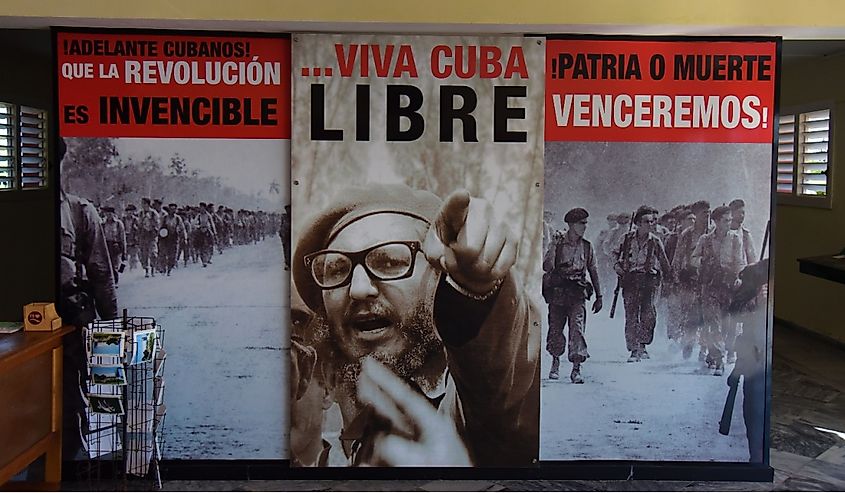
Launched in 1961, the Bay of Pigs Invasion was a short-lived attempt by the United States to overthrow Fidel Castro's government in Cuba. On April 17th, a CIA-funded group of Cuban exiles, known as Brigade 2506, landed at the Bay of Pigs beach to initiate the invasion. However, Fidel Castro quickly took command of the counteroffensive, and the U.S.-backed forces began losing their strategic advantage. As the international community learned of the invasion, President Kennedy decided against providing the planned air support, leaving the brigade with insufficient resources to succeed.
Within three days, the Cuban Revolutionary Armed Forces overwhelmed the brigade, forcing its surrender. Most of the captured exiles were imprisoned and interrogated. The failure became a major embarrassment for U.S. policy, escalated Cold War tensions with the Soviet Union, and solidified Fidel Castro's status as a national hero.
War in Afghanistan
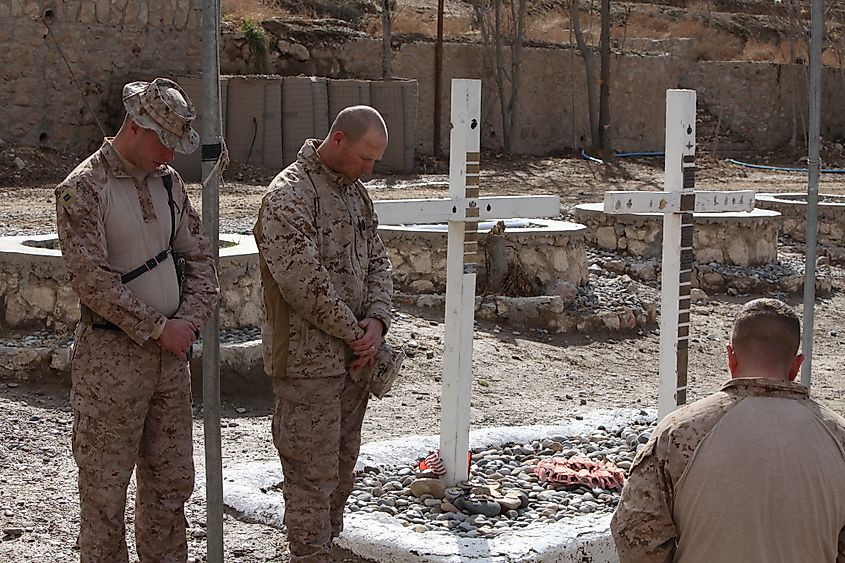
The September 11th attacks in the United States triggered the War in Afghanistan, which began on October 7th, 2001, when a U.S.-led international military coalition invaded Afghanistan. In the early years, U.S. and allied forces largely expelled the Taliban from major cities, significantly weakening its influence. However, over the next decade, the Taliban, under the reorganized leadership of its founder Mullah Omar, gradually regained control over various parts of Afghanistan.
After a U.S. mission led to the death of Osama bin Laden in 2011, NATO leaders began planning their exit from Afghanistan. In 2014, they ended combat operations and transferred security responsibilities to the Afghan government. In 2020, the U.S. government entered negotiations with the Taliban and agreed to withdraw all forces, a process completed in 2021. Following the U.S. withdrawal, the Taliban swiftly regained control of the country.
Final Thoughts
The defeats the United States has faced throughout its history vary widely, from losses against Algeria and Native American and Taiwanese tribes to more recent conflicts in Vietnam and Afghanistan. The causes of these failures range from a lack of an established navy to inadequate strategic planning. The U.S. is also currently involved in ongoing conflicts, such as its intervention in the Syrian Civil War and the Israel-Hamas conflict, with the outcomes yet to be determined.

